12 June 2025
Blog by Deputy CEO, Megan Spindler-Smith.
COSP18 Day 3 - Decolonising, Disrupting, and Designing a More Inclusive Future
Today at COSP18, the PWDA delegation stepped into another full and energising day of advocacy, learning, and connection.
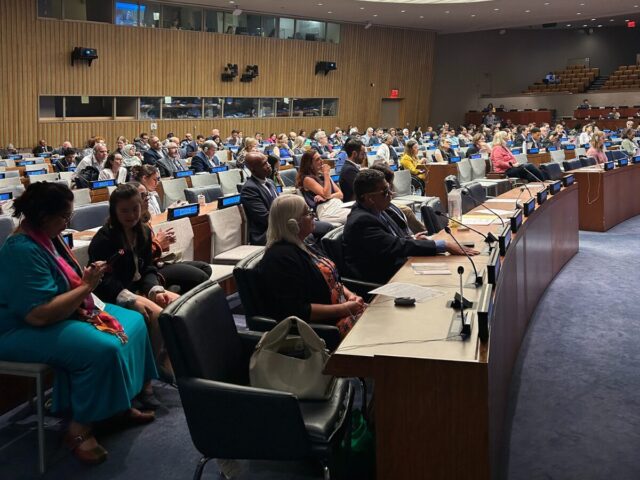
We began in the main conference space, where the general debate resumed with compelling interventions from the Australian delegation. One standout was Gi Brown from Children and Young People with Disability Australia (CYDA), who powerfully called for leadership by First Nations disabled youth and reminded us of the urgent need to end dehumanising medical practices. Gi's emphasis on community-led infrastructures, Indigenous healing, and culture grounded in decolonisation was met with nods of agreement around the room. AFDO then took the floor, with Tim, a young person with disability, rallying for immediate action from youth voices in disability advocacy.
Accelerating Inclusion: Global Disability Inclusion Report
Megan attended a powerful side event led by the Permanent Mission of Jordan and the International Disability Alliance (IDA), presenting the Global Disability Inclusion Report (GDIR). With the upcoming World Social Summit in focus, this session unpacked the gap between rhetoric and reality-where strong commitments on paper are too often met with weak action.
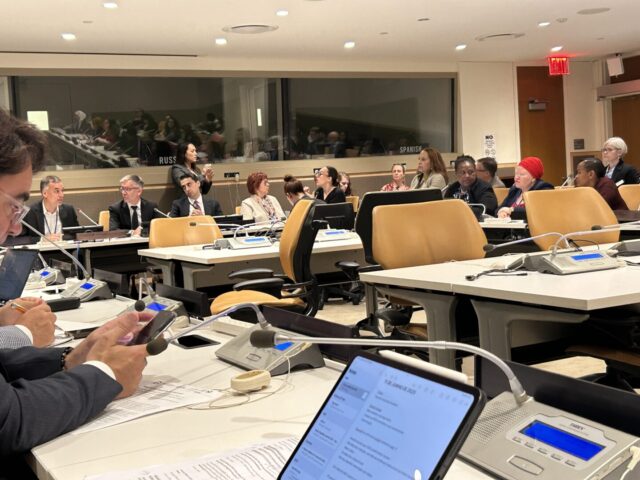
Key insights included:
- A call for up-to-date, accessible data that reflects diverse disability experiences and modern global challenges.
- Recognition that crises-from climate change to migration-disproportionately impact people with disability.
- A clear push for OPD-led solutions, disability-inclusive budgeting, and practical, community-rooted change.
Megan raised a question on translating data into accessible information for people with intellectual disability and community-level knowledge. The response highlighted the ongoing challenges and the promising work by Inclusion International to produce easy-read resources-though access remains limited in low-income regions.
This session also connected us with Laís Silveira Costa from Fiocruz, who shared some brilliant tools that make disability rights more understandable and actionable across communities.
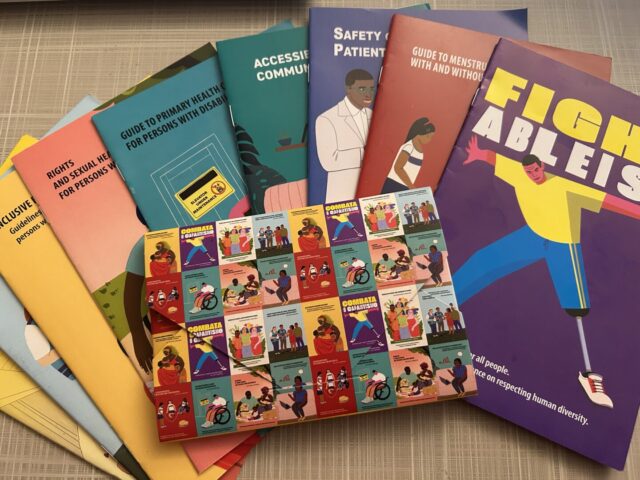
Challenging Stereotypes in Media and the Labour Market
Another side event, hosted by Poland with contributions from Australia and Sierra Leone, centred on the role of media in shaping perceptions of disability. It challenged outdated portrayals and highlighted how accessibility-in architecture, communication, and technology-is key to participation.
The European Employment Package was also showcased, offering tools to combat persistent employment discrimination. Importantly, it reminded us that awareness-raising must go hand-in-hand with systemic change.
Inclusive Motherhood and Reproductive Rights
Steph and Alex attended a moving session led by Lithuania that focused on inclusive motherhood and reproductive justice. We heard confronting evidence about the ongoing risks of forced sterilisation and violence against women with disabilities. Although legal protections exist, the disconnect between rights and lived reality remains stark. The session powerfully highlighted that reproductive rights and disability justice must be pursued together, through frameworks grounded in lived experience.
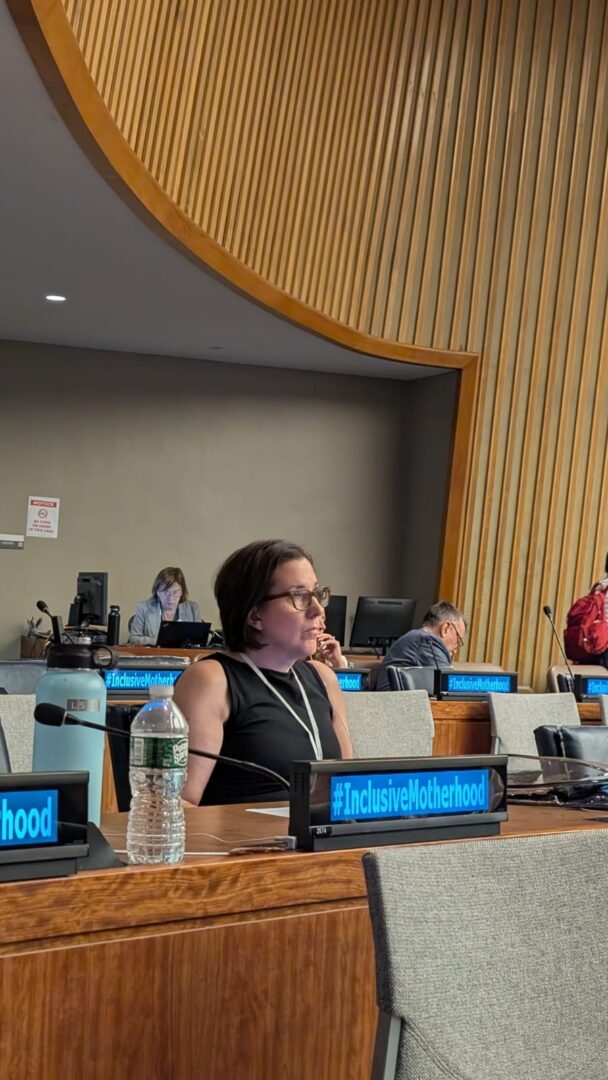

Disability and Legal Access: Health Justice Partnership
A proud moment for Australia, this side event showcased the Health Justice Partnership-a model where lawyers and health professionals work together to support people with psychosocial disability. The principle is simple but radical: no one should be left behind when it comes to health or justice. This multidisciplinary approach is already changing lives.
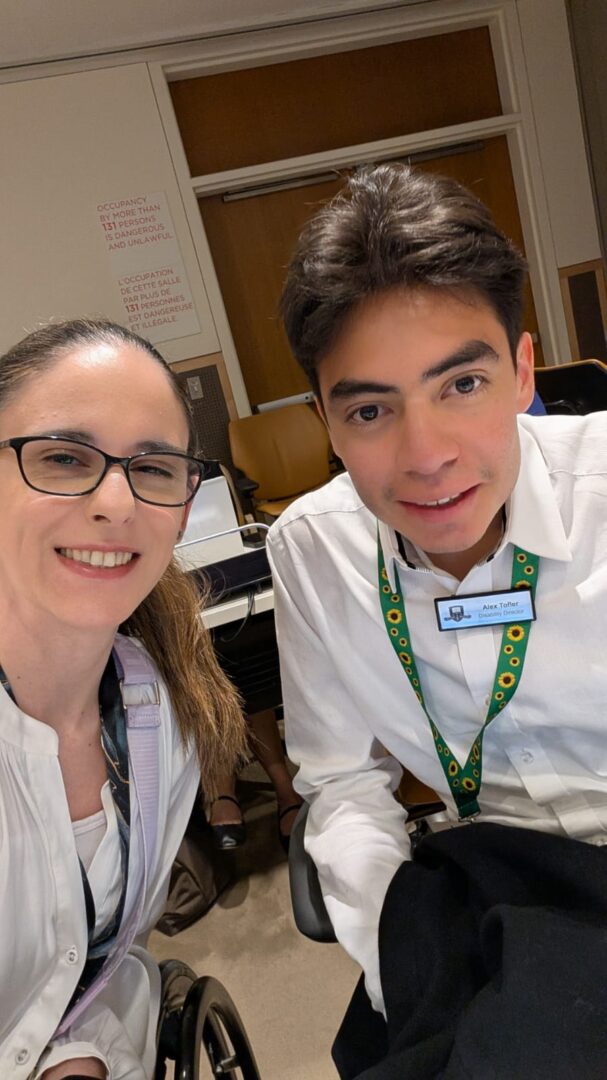
Centre Disability in Urban Futures
Steph also joined an online session with the United States International Council on Disabilities. In the face of funding cuts and political shifts, the US disability community is fighting back-recommitting to inclusive values and sharing lessons globally. The event explored how systems-level investment can drive inclusive urban environments and protect hard-won rights.
Indigenous Women and Data Justice
The theme of intersectionality was once again front and centre during a session on Indigenous women and girls with disability. Steph reflected on how closely Articles 12 and 13 of the CRPD are linked-supporting both decision-making and equitable access to key services. The session stressed how data-or the lack of it-shapes urgency. In South America, data is nearly non-existent. In Australia, we have the numbers but not the political will to act on them. Both must change.
Nothing About Us Without Us - In Practice
At a key side event hosted by Ireland, Sierra Leone, and others, Megan and Steph joined discussions about the power of co-design between governments and DPOs. From Sierra Leone's whole-of-government commitment to partnership, to Ireland's trust-building efforts, we saw that genuine collaboration leads to better outcomes.
Core messages included:
- People with disability must be meaningfully involved at every stage of policy development.
- DPOs need sustainable funding and accessible processes to fully participate.
- Governments must create space, share power, and let disabled people lead.
Megan also began conversations with Ireland's Children and Young People DPO about future shared learning-a valuable connection for deepening youth co-design approaches.
Art as Advocacy - Perceptions of Sentience
To close the day, we visited the Perceptions of Sentience art exhibition, showcasing the extraordinary work of neurodivergent artists from around the world. This powerful collection challenges stigma and centres autistic voices through creativity and bold expression. It reminded us that inclusion is as much about culture and storytelling as it is about policy.
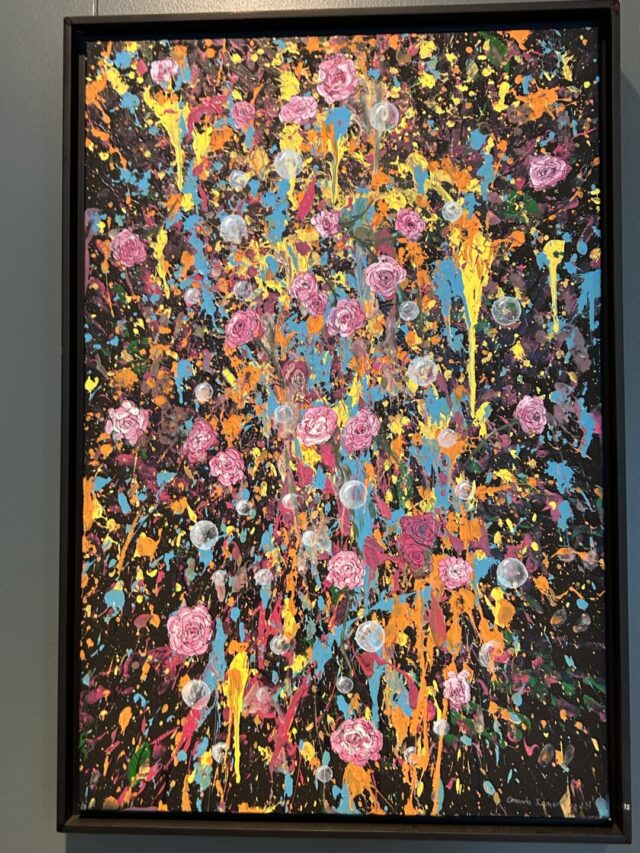
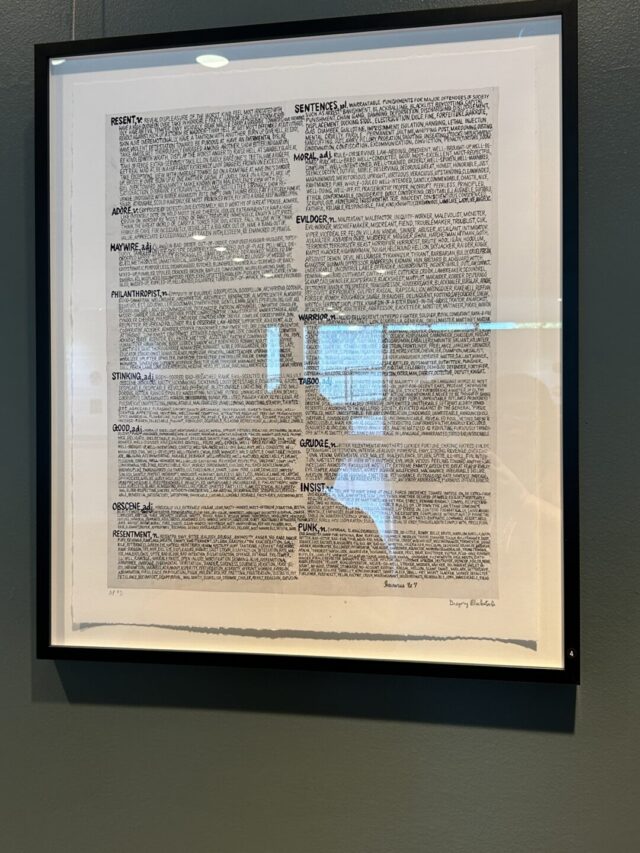
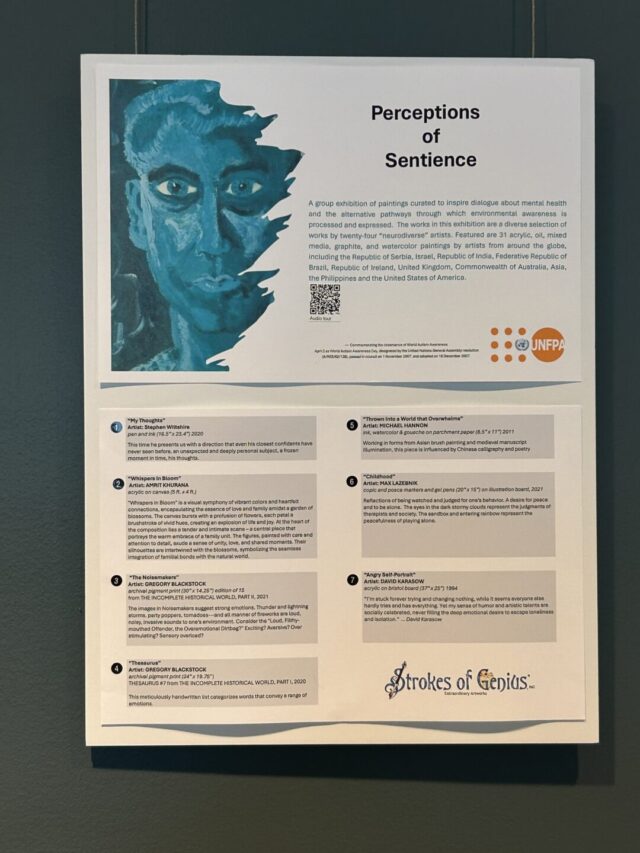
We left today inspired and re-energised. Day 3 deepened our understanding of what inclusion looks like in action-from youth leadership to justice partnerships, and from accessible data to decolonising systems. Most importantly, we were reminded that people with disability must not just be present-we must be heard, respected, and leading the way.
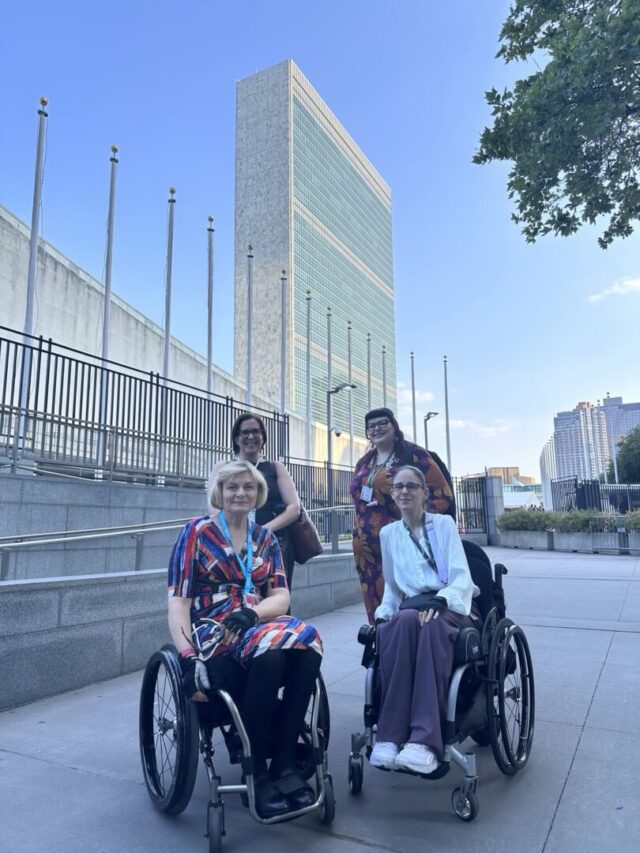
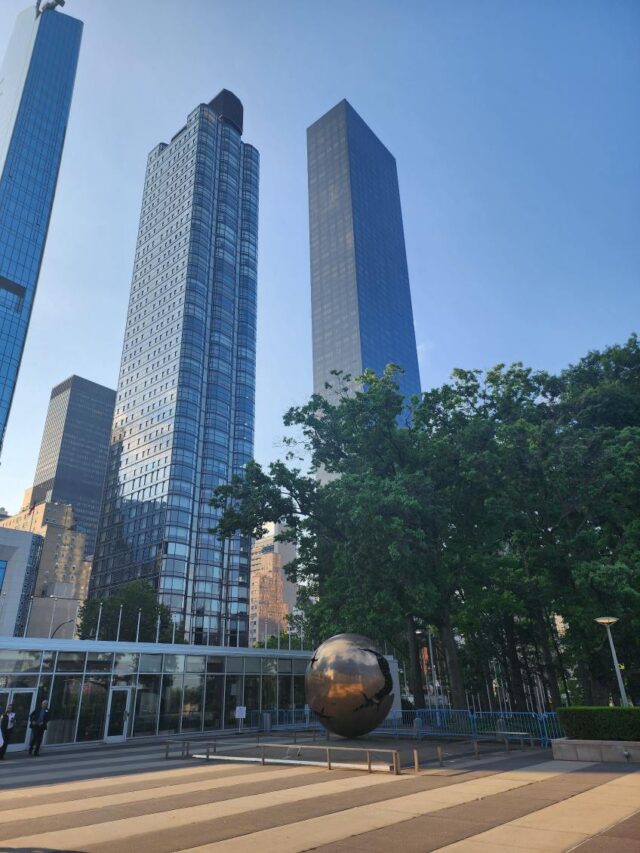
Stay tuned for more reflections from COSP18 as we continue to elevate the voices of people with disability, everywhere.
Ends | Contact Us






